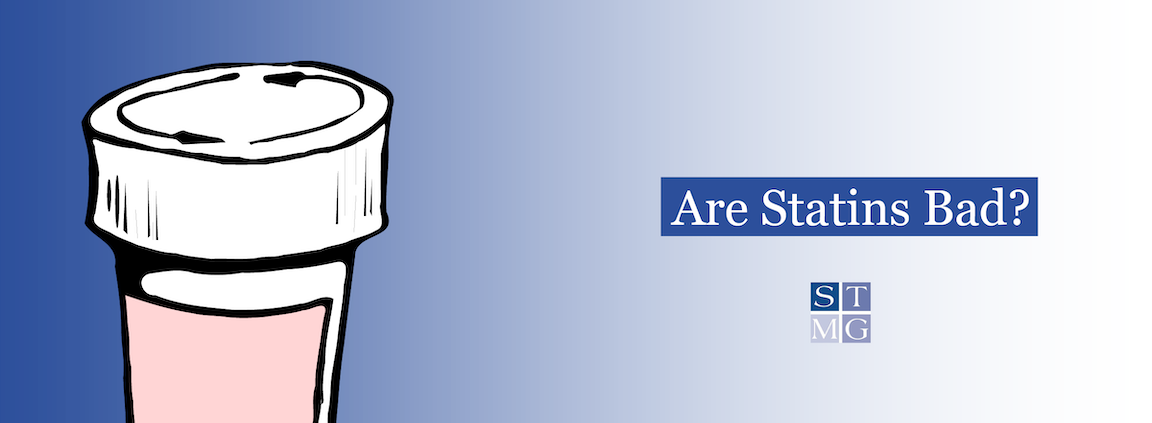Are Statins Bad? Let’s Take a Closer Look
We all want the best for our health. But sometimes it’s hard to agree on how to get there. (Just step into a room of vegans and paleo die-hards, and stand in the crossfire!) When it comes to statins, professional opinions and even the research, itself, can be rather polarizing. Some say statins are bad and should be avoided at all costs. Others say that statins are a great way for managing LDL (“bad”) cholesterol and should be used for reducing risk of heart attack and stroke.
So, who’s right?
Let’s take a closer look at the issue…
What Are Statins?
Statins are a type of drug that inhibit the production of HMG CoA Reductase, an enzyme the liver relies on for the production of cholesterol. Common statins you may have heard of include:
- Atorvastatin (Lipitor)
- Fluvastatin (Lescol XL)
- Lovastatin (Altoprev)
- Pitavastatin (Livalo)
- Pravastatin (Pravachol)
- Rosuvastatin (Crestor, Ezallor)
- Simvastatin (Zocor, FloLipid)
If you have high cholesterol and your doctor is concerned about your risk for stroke or heart attack, then you may have been prescribed one of these statins.
Risks Associated With Statins
Let’s explore some of the common risks, side effects (and misconceptions!) surrounding statins.
- Muscle Soreness: One of the most common complaints heard from patients on statins is muscle soreness or fatigue. While there certainly are legitimate claims of muscle soreness, researchers have noticed something called a “nocebo” effect with regards to this side effect. A nocebo effect occurs when patients given a placebo in a clinical trial report a negative side effect associated with the actual drug (which they aren’t receiving) because they expect it. While the risk of developing muscle pain is somewhere around five percent or less, as many as 30 percent of people taking a placebo report muscle fatigue! This outcome suggests that many cases of muscle soreness associated with statin use may not actually be caused by statins.
- Liver Damage: Statin use interferes with normal liver function. Occasionally, there could be an increase in the production of a certain enzyme that signals liver inflammation. When this occurs at a low level, many people are fine to continue their use of statins. If the jump in enzyme levels is severe, then your doctor may advise quitting statin use in order to avoid liver damage.
- Elevated Blood Sugar Levels (sometimes Type 2 Diabetes): In some people taking statins, blood sugar may increase; in some of those cases, the increase in blood sugar levels could be significant enough to cause type 2 diabetes. Of course, patients who already have type 2 diabetes may be at a higher risk for heart attack. The benefit of added heart protection may outweigh the minimal increase in blood sugar level that’s caused by a statin.
- Memory Loss & Confusion: There is some evidence that statin use may cause certain neurological problems, such as memory loss and confusion. If you do experience these side effects, the good news is that the damage is not permanent and is reversed once statin use is stopped. Interestingly enough, there are some studies that suggest statin use can actually have cognitive benefits for some patients with dementia.
So, are statins good or bad? For many of the 30 percent of American adults taking statins, the benefits outweigh the risks and side effects. For others, sustained statin use is simply not practical.
As always, it’s ideal if you are able to lower your LDL cholesterol through dietary, exercise, and lifestyle changes. If this is not possible, talk with your doctor about whether or not statins are right for you.
Schedule Your Appointment With an Internal Medicine Provider
Do you want to learn more about statins and high cholesterol? Schedule an appointment with your internal medicine provider at St. Thomas Medical Group in Nashville for more information. Call +1 (615) 297-2700 today.



